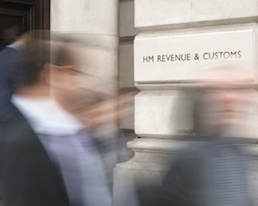HMRC has warned UK taxpayers that they must declare any foreign income or profits on offshore assets by 30 September to avoid higher tax penalties.
New legislation - called ‘Requirement to Correct’ - requires UK taxpayers to notify HMRC about any offshore tax liabilities relating to UK income tax, capital gains tax, or inheritance tax.
Once a customer has notified HMRC by 30 September of their intention to make a declaration, they will then have 90 days to make the full disclosure and pay any tax owed, say the Revenue.
However the tax body says some UK taxpayers may not realise they have a requirement to declare their overseas financial interests.
Under the rules, actions like renting out a property abroad, transferring income and assets from one country to another, or renting out a UK property when living abroad could mean taxpayers face a tax bill in the UK.
Mel Stride MP, Financial Secretary to the Treasury, said: “Since 2010 we have secured over £2.8bn for our vital public services by tackling offshore tax evaders, and we will continue to relentlessly crack down on those not playing by the rules.
“This new measure will place higher penalties on those who do not contact HMRC and ensure their offshore tax liabilities are correct. I urge anyone affected to get in touch with HMRC now.”
HMRC says that from 1 October more than 100 countries, including the UK, will be able to exchange data on financial accounts under the Common Reporting Standard (CRS).
The most common reasons for declaring offshore tax are in relation to foreign property, investment income and moving money into the UK from abroad.
Over 17,000 people have already contacted HMRC to notify the department about tax due from sources of foreign income, such as their holiday homes and overseas properties.
HMRC quotes examples of potential offshore assets as including: art and antiques, bank and other savings accounts, boats, cash, debts owed to a person, gold and silver articles, government securities, land and buildings including holiday timeshare, life assurance policies and pensions, stockbroker’s or solicitors’ accounts, bond deposits and loans including personal portfolio bonds, rights or intellectual property including image rights, stocks and shares, trusts including employee benefit trusts and self-employed persons trusts.

